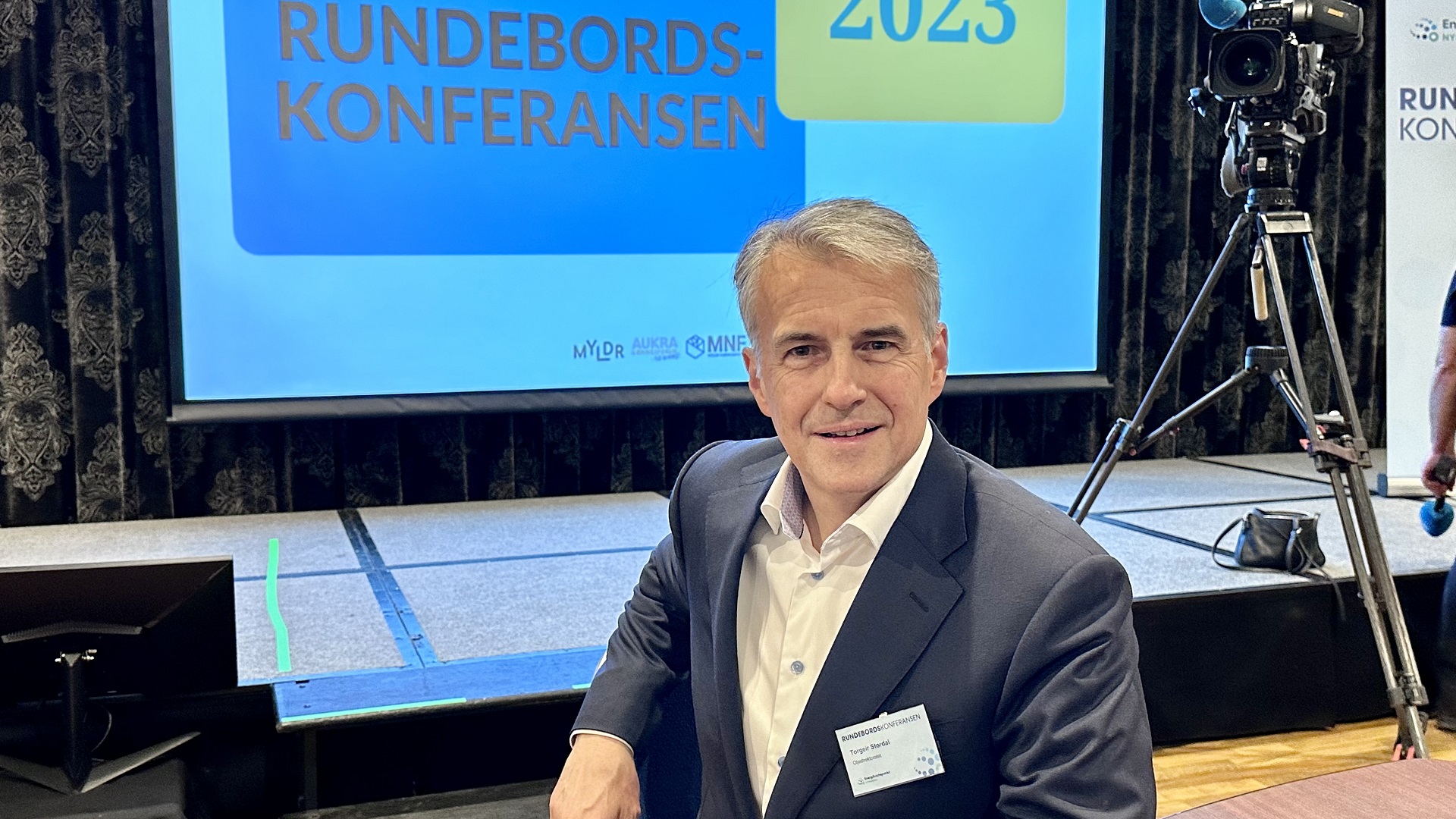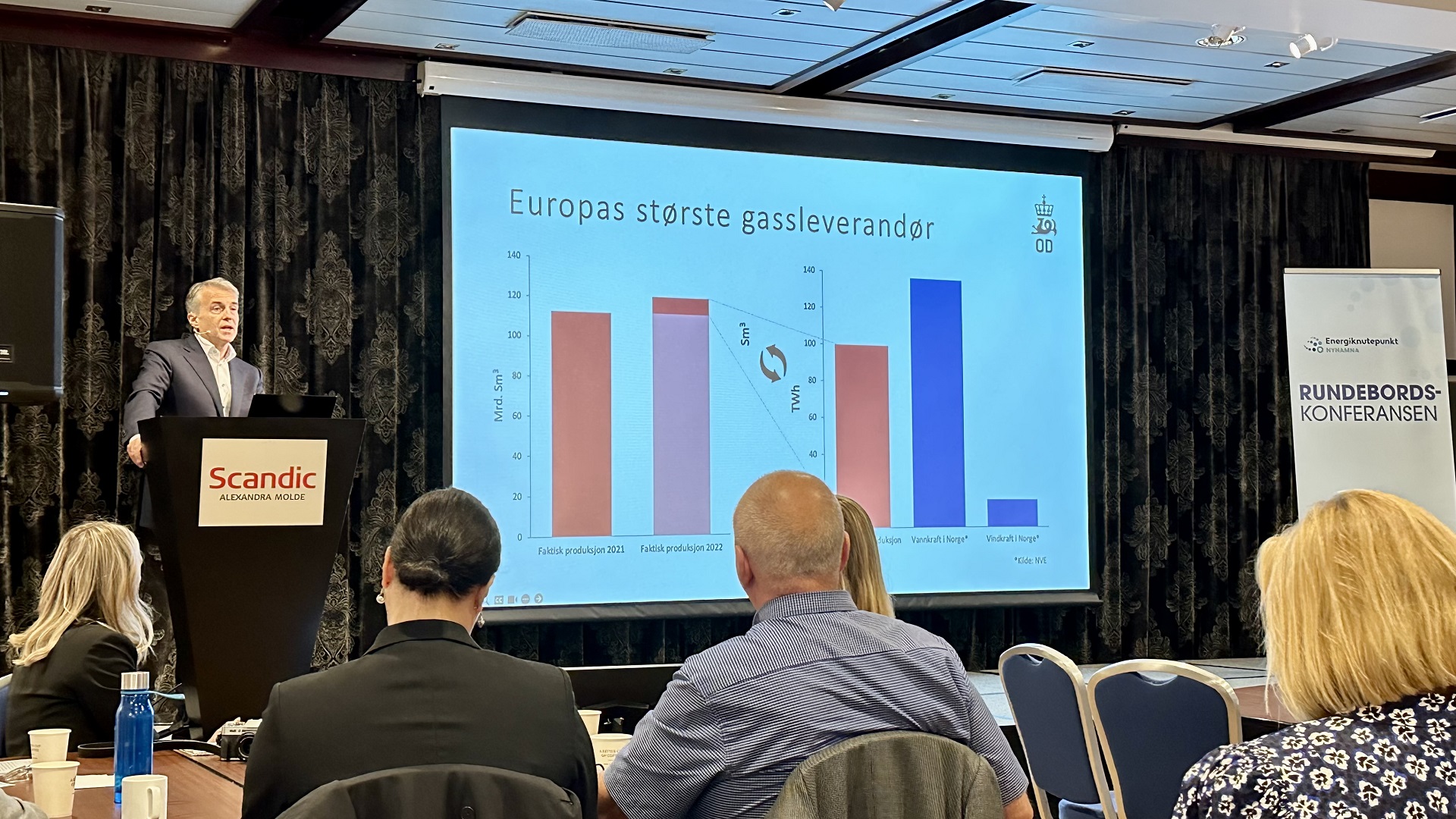Norwegian gas important for Europe’s energy security

Director General Torgeir Stordal was among the introductory speakers at the Roundtable conference in Molde on Wednesday. The conference targets the geopolitical situation and the importance of Norwegian gas supplies to Europe.
21/07/2023 Norway can continue to be a stabile supplier of oil and gas and contribute to Europe’s energy security for many years to come. But that means that we must continue to develop the Norwegian shelf.
"Norway can be a stabile exporter of oil and gas, and thus contribute to Europe’s energy security, for many years to come”.
Those were the words of Director General Torgeir Stordal at the roundtable conference in Molde on Wednesday. The conference topic was the geopolitical situation and the importance of Norwegian gas supplies to Europe. The audience included politicians and representatives from regional business and industry.
Norway is primary gas supplier
Norway stepped up when Russian gas supplies were cut off last year, and is now Europe’s largest supplier of gas.
“With the authorities’ facilitation, gas producers on the Norwegian shelf joined in a considerable effort to deliver as much gas as possible to Europe in 2022. Norwegian gas is now a critical factor for European gas supplies and energy security,” Stordal said.
Production on the Norwegian shelf remains at a high level, and it will increase over the next few years.
“There are several reasons for this. We actually have as many as 93 fields on the shelf. Fields that shut down are replaced by new ones at a steady pace, and older fields are producing both longer and more than previously expected. Gas production has remained at a stabile high level for a number of years, and now accounts for more than half of total production,” he said.

Continued high gas production
In 2022, the Norwegian shelf produced 122 billion standard cubic metres (Sm3) of gas, which represents an increase of eight per cent from the previous year. This increase corresponds to the gas consumption of one-third of all German households.
“These are big numbers, and this contribution from Norway has been extremely important for European energy security. The latest figures reveal that gas production remains high.”
Gas production was 58.4 billion Sm3 in the first six months of the year, which is about four per cent lower than last year. This is mainly due to maintenance at onshore facilities in the early part of summer. The NPD expects that gas production will hold steady at the 2022 level for the next four to five years.
“Many question whether Europe will need all this gas in a longer-term perspective. What we know is that Europe’s own production will continue to fall in the years ahead. There will still be a significant shortfall even if demand declines, and this need will have to be met through imports. Norwegian gas is transported to Europe by direct pipelines, which makes this a very competitive solution.”
Norway will continue delivering oil and gas for many years
Stordal went on to say that, while production will gradually decline, the petroleum industry will still be large and important in 2040. The industry has decided to proceed with many new development projects. In 2022 alone, we saw positive investment decisions worth around 300 billion kroner.
“These decisions will ensure that Norway can remain a stabile exporter of oil and gas, and thus contribute to energy security in Europe for many years into the future.”
There are still significant resources on the shelf, and exploration activity is high. As recently as yesterday we noted reports of a significant gas/condensate and oil discovery northwest of the Troll field.
“If we want to maintain our role as a significant supplier over the longer term, we must continue to invest on the shelf, both in further development of fields, development of discoveries and exploration for new resources.”
The 2023 Roundtable conference is organised by Energiknutepunkt Nyhamna (energy hub) in cooperation with the chambers of commerce in Aukra and Molde. The objective is to develop Nyhamna in Aukra municipality into a key energy hub, and to support the transition to a zero emission society.
Energiknutepunkt Nyhamna is a collaborative project among the five municipalities in Romsdal along with Møre og Romsdal county authority, LO <Norwegian Confederation of Trade Unions>, NHO <Confederation of Norwegian Enterprise> and Molde University College.
This year’s speakers include Norwegian Minister of Foreign Affairs Anniken Huitfeldt, Conservative Party leader Erna Solberg, Germany’s ambassador to Norway Dr. Detlef Wächter, Geir Hågen Karlsen from the Norwegian Defence University College, Frode Leversund from Gassco, Peter Schwarz from Wintershall DEA, Line Hoem, chair of the county council in Møre og Romsdal; Odd Jørgen Nilssen, mayor of Aukra municipality; Ronny Karlsen from Wind Catching Systems and Director General Torgeir Stordal.
Read more about production on the Norwegian shelf: Continued high gas production and many new development projects
Read more about future prospects for the Norwegian shelf: 2022 resource report
Read about the last discovery on the norwegian continental shelf : Gas/condensate and oil discovery west of the Troll field in the North Sea
Director Communication, public affairs and emergency response
Updated: 21/07/2023